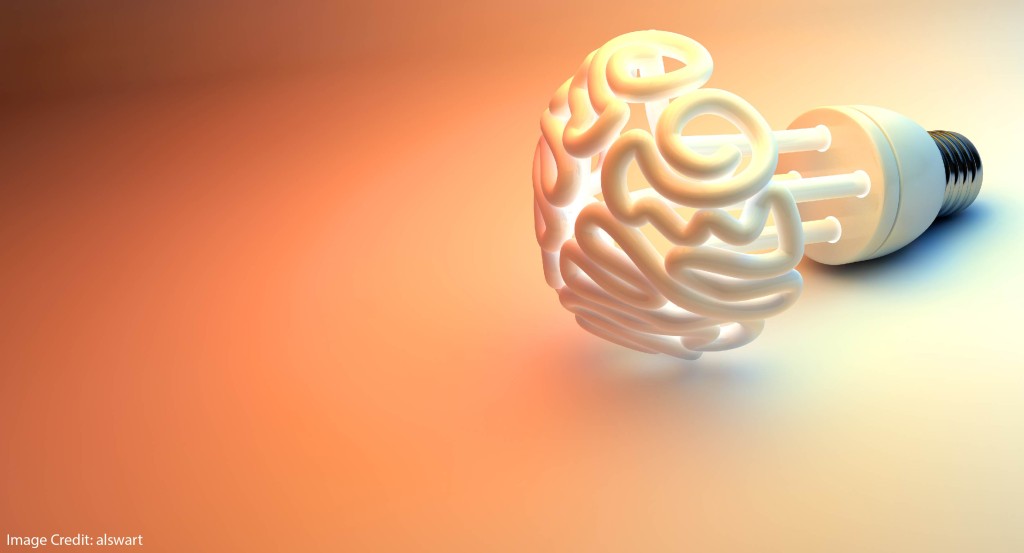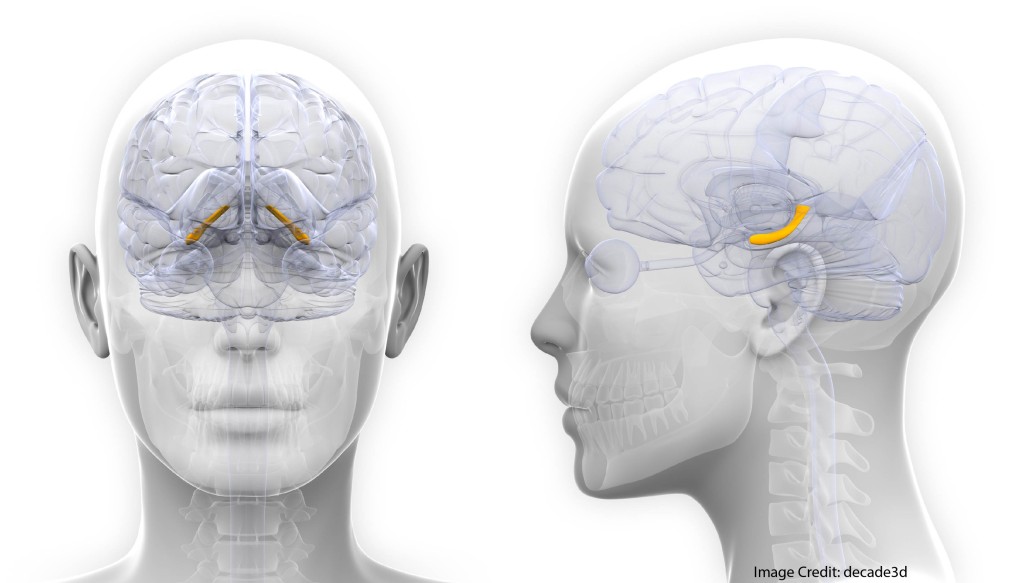This article is the first in an occasional series where I’ll introduce people who will be speaking at an upcoming Learning and the Brain conference.
Dr. Sapna Cheryan, Associate Professor of Psychology at the University of Washington, has been researching the ways that physical classroom environments reduce or increase students’ academic interests.
Specifically, she looks at decorations in Computer Science classrooms, and asks if they create a stereotyped atmosphere that might discourage students from taking those classes.
I spoke with Dr. Cheryan by phone to learn more about her research. (This interview has been lightly edited for clarity and condensed for brevity.)
Andrew Watson:
Dr. Cheryan, your research focuses on stereotypes and the power that they have to shape the decisions that we make—for instance, the major we might choose in school. How did you first get interested in that topic?
Sapna Cheryan:
I grew up a second generation Indian American in the Midwest, and I think that caused me to be interested in race, stereotypes, and diversity. On top of that, I went to a STEM focused high school, so gender was relevant there—for example, noticing who was taking what classes.
I just enjoyed thinking about diversity and how broader societal forces shape attitudes and behaviors.
I got interested in studying gender disparities in Computer Science, which is my main focus, because of an experience I had as a graduate student.
It was the early 2000’s. I was in Silicon Valley because I was a student at Stanford. I had just come from two years at a consulting job on the East Coast, so I had the business background and I thought, “Okay, I’ll get a summer internship.”
I remember going to one of the interviews and it was a really good job at a good company. I got an offer, but I ended up leaving that interview feeling like, “Oh, I don’t really think I would really fit in here with these people. I don’t think I really belong here.” And I drew that conclusion based on the way that the company looked: the physical space.
I remember seeing conference rooms that were named after Star Trek ships, and I drew the conclusion that I probably just won’t fit in with people who work at this company.
Then I went to a different interview. I interviewed at Adobe and Adobe has a much different environment. It was really open and colorful, and there was a cafeteria and a gym.
I only met men in both interviews. I would have had a male boss in both cases. But, for me, I really thought the type of people who work [at Adobe]—men and women—are probably going to be people that I fit in with better. I thought I’d have a better summer.
I ended up choosing Adobe, even though they were offering me a lower salary. But that was less important to me than the social fit (though I did end up negotiating my salary because I knew the research on how women get paid less).
Having just spent a year being trained as a graduate student of Social Psychology, I remember thinking: “I wonder if this is something more broad. If there’s something about this geeky stereotype that might be a deterrent to more women than men.” Perhaps that could help explain gender disparities in the field.
Andrew Watson:
Of course, both stereotypes and decision-making processes operate very subtly. Can you explain how to research something that happens so quietly and subtly deep in the psyche?
Sapna Cheryan:
Stereotypes sometimes operate subtly, and sometimes they’re not so subtle. If you ask people to list stereotypes, especially with something like Computer Science—where there’s no real fear of being seen as racist or sexist—people are pretty willing to tell you what their stereotypes of certain majors are.
We just simply ask people, “Describe computer scientists.”
Even when we’re asking for an accurate description, undergrads will still give us highly stereotypical phrases. They’ll say things like, “Don’t take showers.” “Socially awkward.” “Interested in Sci Fi.” They have all these stereotypes and they’ll tell them to you even if you don’t use the word “stereotypes.”
In our studies, we set up an environment where the stereotype is salient in some way, but participants don’t know that we’re studying that stereotype.
For example, the very first study that I did with gender disparities was trying to replicate my own experience of going to those different [summer internship] interviews.
We took over a small classroom at the Computer Science building in Stanford. We decorated it to look like the first company that I interviewed at. We put up Star Trek posters. We had soda cans that were stacked in a pyramid. We had science fiction books and stray electronic parts lying around.
Students would either come into a room that looked like that, or into the same room but redecorated. Instead of Star Wars and Star Trek, we had nature posters and art posters and water bottles instead of soda cans. General interest books and magazines.
We told the students, “We’re sharing this room with another group. That’s why there’s all this stuff in the room. You can just ignore it. Please sit here at this table and fill out this questionnaire.” We told them we were doing a study on career interests. They thought they were just filling out a career interest inventory.
We asked them how interested they were in majoring in Computer Science as part of that questionnaire. What we found is that the stereotypical room, the one with the Star Trek stuff, caused women to express lower interest in Computer Science than the women who were in the non-stereotypical room.
For men, we didn’t see a difference in that study.
That was one way that we can get at the effect of the stereotypes without the students knowing that we’re studying those specific stereotypes.
[Editor’s note: here’s a link to that study.]Andrew Watson:
In describing the effect that stereotypical objects have on people, you’ve used the phrase “ambient belonging.” Can you talk a little bit more about what that means?
Sapna Cheryan:
We came up with that phrase to describe the sense that people get when they walk into an environment, look around and get a feel for whether they fit with the environment and with the people that they imagine to be in that environment.
We investigated it with Computer Science, but we think that the term can be thought of more broadly.
The example I like to give is when you visit a new city for the first time and you’re driving or walking around. I think a lot of people can get a sense of whether they fit with that city—even without talking to the people, or looking up facts about the city.
They’re doing it by looking at the stores and the restaurants and the cars, and getting a sense of whether this city feels like somewhere they would want to live or whether they feel similar to the people in that city.
It’s the idea that you can walk into a space and get an immediate impression of whether you would fit there and with the people you imagine would be there.
Andrew Watson:
Got it. A lot of your writing is actually quite specific and practical about ways to improve ambient belonging for groups who are typically left out. Can you give a suggestion or two?
Sapna Cheryan:
Our focus has really been on changing the stereotypes and broadening the image of Computer Science so that students don’t think they have to fit this narrow, geeky image to be successful in the field. We targeted three ways to change this image.
One is by changing environments, as we talked about. Companies and departments [should] look around and see what their spaces are communicating. If you are trying to recruit a broader group of people, you should make sure that the physical environment actually fits with the image you want to be communicating.
We’ve also talked about the media. One of the most common ways students learn about different careers, sadly, is from the media. They get more exposure to what a scientist is because of TV shows than they do from any other source. Media depictions of computer scientists and engineers include Big Bang Theory and Revenge of the Nerds. The archetypal Computer Science image has not changed much since the 1980’s.
I’d like to get a new image out there, to give Computer Science a TV show like what ER did for medicine or LA Law did for law. Those two shows actually helped diversify the fields because they presented an image that was diverse: women and men, and people of all races. That helped make the image of those fields more welcoming to more, different kinds of people.
The third [way to change stereotypes] is role modeling. That can mean portraying yourself as more than just the stereotypes. Not only talking about the ways you fit the stereotype, but also talking about your other interests.
Andrew Watson:
Certainly, the first and third of your suggestions are the sorts of things that schools can do to promote social change.
Sapna Cheryan:
Schools do have a lot of power to influence the way their students think about majors. I think mandatory Computer Science classes could help. But, we also have to be very careful how that Computer Science is taught.
I have a personal example. My high school had mandatory Computer Science. I went to a small high school. It was 53 students. In our class of 53, one girl ended up going into Computer Science. Even though we were all very well trained for a field like Computer Science and we were graduating at a time when there was a huge need [in the tech field].
40% of our boys ended up being Computer Scientists. Our class was taught in a way that really reinforced that Computer Science was something that the boys were good at. We went in with stereotypes that the role-playing-game boys were going to do well in the class.
My suspicion now is that the girls probably got higher grades than the boys. The boys were talking a lot in class, using all these buzz words that we had never heard of. We had this impression that they were really, really smart.
Now that I know the research, my guess is that we were probably doing just as well or better in the class than the boys. But nobody ever told us. Nobody ever said, “You’re getting an A. You should consider pursing this.” The class just reinforced our stereotypes going in.
Andrew Watson:
Are there misunderstandings about your research that you’d like to correct?
Sapna Cheryan:
That’s a good question.
First, when I listed three ways to change stereotypes, I want to be clear that you can’t just change one thing. You can’t just go change the posters in your lobby or just add one TV show. If it was that simple, then gender disparities would be decreasing, and they’re not. They’re stagnant in Computer Science. It’s going to require a sort of cultural revolution: some big social movement in Computer Science and other fields, like Engineering and Physics, to really make this change.
Second, I think a bigger misunderstanding is that talking about stereotypes promotes them. Sometimes people say, “Just by researching these stereotypes you are making them real. Students now think that this is how Computer Science is. We should just not talk about it.”
I think that’s a misconception, because students already have these stereotypes in their head. I’m not putting them there. If we don’t talk about it, then there’s nothing to interrupt that or get students to question whether they should have those stereotypes or not.
The [third misunderstanding] is when I talk about “men and women,” I never mean all men and all women.
Every time I give a talk, I mention that it’s not all men like this stereotype and all women don’t. We always get a core group of women in our studies who choose the stereotypical room over the non-stereotypical room.
The first time I gave a talk at Google, first question I got was from a woman who said, “I love Star Trek. It’s why I’m a programmer. Star Trek got me into this field.” It’s a reminder that when I talk about disparities, I’m talking about in aggregate and not talking about any individual.
I’m not trying to kick the geeks out of Computer Science, or say that we should completely change the image to a feminine one. What I’m trying to do is broaden the umbrella. You can identify as a geek, or somebody who likes Star Trek, and get into the field.
But, that shouldn’t be the only type of person who thinks that they can be in the field. We should also welcome people who didn’t start coding when they were four years old. We have to have a broader umbrella.
I think again, medicine is a good example. When I say, “Imagine a doctor,” you might have an image of a doctor and maybe it’s a male doctor. Then I say, “Think of another doctor.” It’s not too hard to think of a doctor who looks different from that first doctor.
But with Computer Scientists, you think of one, and a second one, you think of a third one, they all seem similar to each other. That’s what I want to change. I want to make it so that we think of different types of successful people in the field.
[Editor’s note: Here‘s a TedX talk where Dr. Cheryan elaborates on this point.]Andrew Watson:
On the blog, we emphasize that in the sciences, whenever people publish new or important ideas, there is always disagreement and push-back. In fact, the criticism and the tussle really improve our understanding of those ideas.
So, my next question is: because you’ve published new and important ideas, I’m sure that people are pushing back. What do you think are the most valid critiques of the work you’re doing? Where do you think skepticism is most justified?
Sapna Cheryan:
Sometimes people say to me, “classrooms don’t really look like this. You don’t see geeky, stereotypical classrooms.” I think that’s fair; a lot of classrooms don’t look like this.
(Although, people have come to me and told me stories about classrooms that do look that: maybe not as extreme, but they do have elements of the stereotypical things.)
I am trying to show that these stereotypes matter. It would be great to go through and catalog what real classrooms look like. How extreme are they on these variables, and how much [stereotypical] stuff do you need in the classroom to have people start drawing conclusions? Can you just have one poster or a few action figures? Is that enough for people to draw conclusions? If not, does that mean we should only focus on the small percentage of classrooms that have an extreme version?
Andrew Watson:
A non-science question for you. Some of the people at the conference haven’t been to Boston before. Are there places you’d recommend?
Sapna Cheryan:
I live really far from Boston, but my best friend lives in Boston, so I visit her on occasion. My favorite place to go is called Sofra. It’s this cool Middle Eastern restaurant and the food is really, really good. I think it might be in Cambridge. We try to go there every time I visit.
Andrew Watson:
I’ll pass that along. Thanks so much for taking this time.
Sapna Cheryan:
You’re welcome.
















